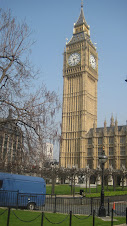
This quote from Isaiah is given by God to the people of Israel as assurance that they will be forgiven. It has the sense of a slate being wiped clean and is especially familiar in Lenten readings. This quote came to my mind in a very different way as I walked around the Cathedral of St. George in Grahamstown where I preached and for whom I led workshops on healing.
Typical of English style Cathedrals, memorials line the walls extolling the virtues and accomplishments of those they remember. One plaque was in memory of a verger who after decades of service dropped dead in the aisle. The brass plaque gave him the credit such service merited and lauded him even as he “entered glory not far from this spot.”
Many of the memorials are for young men killed in the various wars and battles between the English and Xhosa people in the 1800’s. Curiously, marble strips have been placed on the plaques blanking out references to that time that are today unacceptable. It was done some years ago and no one today knows what those references are. It seems there’s another way to blot out sins!
History is mostly written by the winners of conflict. The pride of victory too frequently negates those vanquished, their lives and dreams, and their humanity. Loving one’s enemies, as Jesus taught, makes battle a horrific enterprise since we have to be aware that we are hurting and killing our brothers and sisters, even as we seek to protect ourselves. Battles of offense are unacceptable.
Victors of offensive battle do not usually see the hubris of their causes. Words that were engraved with great pride in the 1800’s are shockingly shameful in this millennium. I can’t imagine what was blotted out of those plaques, but given what they left untouched, it had to be very bad!
Words, phrases and references that are hurtful to people need to be challenged and stopped. Making real our belief in the dignity of all people extends to the words we use that hurt. We wince at words and music written in times gone by that shock us with today’s awareness. But what do we do with Shakespeare, Wagner or Disney? They all have examples or racist, misogynistic, or anti-Semitic words. Do we throw out the words and music we no longer tolerate? Do you store them on a shelf or change them?
There is a debate in the Cathedral about keeping the plaques up at all. Some want them removed and disposed of in an undignified way. Others are content to remove them and store them for historic value. Still others want them to remain up and like having the portions blotted out as a witness that we cannot forget the past but will not tolerate their offensiveness. Similar arguments are forceful in memorials to the Jewish Holocaust. To blot out all reference is to risk forgetting the atrocity. As the debate continues the plaques remain on the wall. However, newer plaques, musical instruments, and works of art witnessing the new South Africa with bold colors and vibrant spirit are up and witness a triumph of their own. These are up, not at the cost of another people, but in celebration of them.













No comments:
Post a Comment